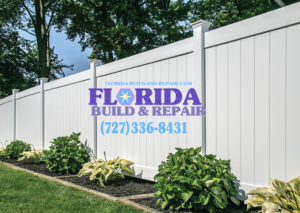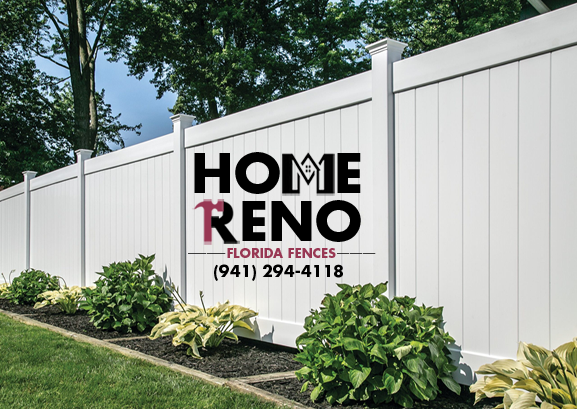Cape Coral Vinyl Privacy Fence Installation: Cost, Tips, and Benefits
Installing a vinyl privacy fence in Cape Coral is a smart way to boost seclusion, security, and style with minimal upkeep. Here’s a breakdown of the costs, practical tips, and benefits to help you decide and execute it well.
Cost Breakdown
Costs vary by region, fence height (typically 6 feet for privacy), and whether you DIY or hire out. Here’s a rough estimate for 2025:
DIY Costs
- Materials:
- Vinyl fence kit (panels, posts, rails, caps): $20-$40 per linear foot. For 100 feet, that’s $2,000-$4,000.
- Concrete: $5-$10 per bag, 1-2 bags per post (10 posts = $50-$200).
- Gravel: $10-$20 per 100 feet.
- Total: $2,060-$4,220 for 100 linear feet.
- Tools:
- Own them? Free. Buying basics (post hole digger, level, etc.): $50-$200. Renting an auger: ~$50/day.
- Total DIY: $2,110-$4,420 for 100 feet.
Professional Costs
- Labor + Materials: $35-$60 per linear foot, including higher-end vinyl and installation. For 100 feet: $3,500-$6,000.
- Extras: Gates ($200-$500 each), slope adjustments, or permit fees ($50-$200) can bump it up.
Hidden Costs
- Permits: Check local rules—some areas charge $50-$100.
- Utility marking: Free via 811, but delays cost time.
- Mistakes: Extra panels or posts for slip-ups add $50-$150 each.
Tips for Success
- Measure Smart: Confirm your fence line and panel spacing (6 or 8 feet) before buying. Overbuy by one panel to cover errors.
- Set Posts Right: Dig 2-3 feet deep, use gravel for drainage, and level every post—crooked posts ruin the look. Let concrete cure 24-48 hours.
- Mind the Weather: Vinyl expands in heat, shrinks in cold. Install in mild temps and leave manufacturer-recommended gaps (e.g., 1/8 inch).
- Slope Strategy: Step panels on steep grades or rack them on gentle slopes if your kit allows—test one section first.
- Go Easy: Use a rubber mallet, not a hammer, to avoid cracking vinyl. Pre-drill if screws are involved.
- Team Up: A helper speeds up post-setting and panel alignment—solo jobs drag and get sloppy.
- Clean Finish: Hose off dirt after install. Add post caps for a pro touch and to keep water out.
Benefits of Vinyl Privacy Fences
- Privacy: Solid 6-foot panels block sightlines—perfect for backyards or nosy neighbors.
- Durability: Resists rot, insects, and UV fading (with quality vinyl). Lasts 20-30 years, unlike wood’s 10-15.
- Low Maintenance: No painting or staining—just soap and water when dirty. Saves time and money long-term.
- Aesthetics: Sleek, uniform look in colors like white, tan, or gray. Lattice tops add flair if you want.
- Value: Boosts curb appeal and property resale, especially in suburban areas.
- Noise Reduction: Thick panels dampen street or neighbor sounds better than chain-link or spaced pickets.
Trade-Offs to Consider
- Upfront Cost: Higher than wood ($15-$25/foot) or chain-link ($10-$20/foot), but maintenance savings offset it.
- Repairs: Cracked panels need full replacement—not as patchable as wood.
- Style Limits: Less rustic charm than wood if that’s your vibe.
Cost-Saving Hacks
- DIY It: Skip labor fees—most vinyl kits are beginner-friendly with snap-together parts.
- Shop Deals: Buy off-season (late fall/winter) or in bulk from big-box stores.
- Mix Materials: Use vinyl panels with metal posts in high-wind areas for strength without breaking the bank.
Final Take
A Cape Coral vinyl privacy fence runs $2,000-$6,000 for 100 feet, depending on DIY vs. pro. It’s a solid investment if you value privacy and hate upkeep—plus, it’s doable with basic skills. Focus on post alignment and planning, and you’ll get a pro-grade result. Need help with a specific part—like gate costs or slope fixes? Just ask!

Cape Coral Vinyl Privacy Fence Installation: Cost, Tips, and Benefits
Installing a vinyl privacy fence in Cape Coral is a smart way to boost seclusion, security, and style with minimal upkeep. Here’s a breakdown of

How to Install a Cape Coral Vinyl Privacy Fence Like a Pro
Installing a Cape Coral vinyl privacy fence like a pro means focusing on precision, efficiency, and a polished finish—without overcomplicating it. Here’s how to nail

Top Mistakes to Avoid When Installing a Vinyl Privacy Fence in Cape Coral
Installing a vinyl privacy fence in Cape Coral can go smoothly if you sidestep common pitfalls. Here are the top mistakes to avoid, based on

DIY Vinyl Privacy Fence Installation in Cape Coral: What You Need to Know
Installing a DIY vinyl privacy fence in Cape Coral can be a rewarding project that boosts privacy and curb appeal with minimal upkeep. Here’s what

Step-by-Step Guide to Vinyl Privacy Fence Installation in Cape Coral
Here’s a step-by-step guide to installing a vinyl privacy fence in Cape Coral. This assumes you’re working with a standard vinyl fence kit and have


